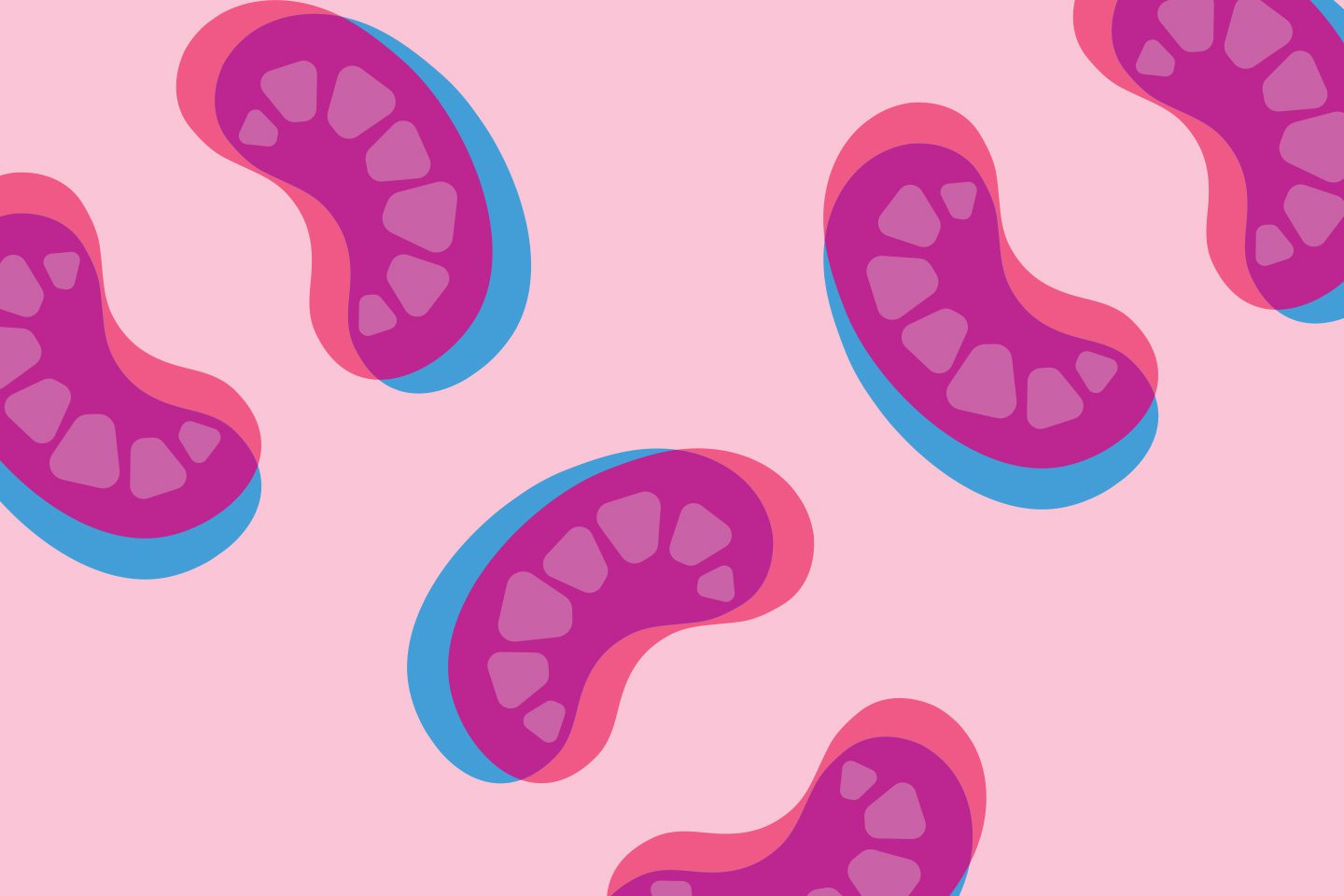From Detection to Treatment
The kidneys are two fist-sized organs near the back of the body, just under the ribcage. Their function is vital – kidneys are what filter your blood to keep it healthy, and they produce hormones that your bones need to stay strong. Unfortunately, when they stop functioning properly, it can be difficult to detect at first. Here’s what you should know about chronic kidney disease and what you can do to optimize your own kidney health.
By Anna Hill


Director of Transplant & Hepatobiliary Surgery, Erlanger Health System/ Transplant & Hepatobiliary Surgeon,
University Surgical Associates
With many of our body’s vital organs, you can easily tell when something’s not right. For example, if you have a stomach virus, your digestive tract will very quickly make you aware of that fact. If you’ve got pneumonia, your lungs won’t be able to keep you breathing with as much ease as you’re used to. However, when it comes to your kidneys, things work a bit differently. If they’re no longer functioning correctly, you likely won’t notice any symptoms until the condition is advanced. Chronic kidney disease, also known as CKD or chronic renal disease, is a stealthy, quiet disease and can often be difficult to detect in its early stages.
Chronic kidney disease is primarily characterized by a gradual loss of function in the kidneys. According to Dr. Leslie Spry, a nephrologist and member of the Public Policy Committee at the National Kidney Foundation, around 37 million Americans (1 in 7 adults) will experience CKD – a figure that is expected to rise alongside rising rates of obesity.
What Role Do Kidneys Play in the Body?
One of the kidneys’ major roles in the body is to remove excess fluids and waste from the body via urination. Without this function, the body wouldn’t be able to maintain a stable balance of fluids and chemicals. The kidneys also produce an active form of vitamin D that promotes bone health, in addition to producing hormones that stimulate red blood cell production, regulate blood pressure, and control calcium metabolism.
What are the symptoms of CKD?


Nephrologist, National
Kidney Foundation
According to the National Kidney Foundation, though symptoms often don’t present in the early stages of CKD, once they do begin to present, they can include the following:
- Fatigue
- Difficulty concentrating
- Poor appetite
- Difficulty sleeping
- Muscle cramping
- Swollen feet or ankles
- Puffy eyes, especially in the morning
- Dry, itchy skin
- Increased frequency of urination
Your risk for kidney disease might be increased if you have a family history of kidney failure, a history of smoking, have diabetes or high blood pressure, are an older adult, or if you belong to a population group that experiences a higher rate of diabetes or blood pressure, such as African Americans, Asian Americans, or indigenous groups.
The complications that can result from CKD have the potential to affect nearly every part of the body. Some of the potential complications that you might experience include cardiovascular disease, anemia, weakened bones, damage to your nervous and immune systems, fluid in the lungs, complications with pregnancy, and increased levels of potassium.

What causes CKD?
CKD occurs whenever a disease or condition hinders or impairs kidney function for an extended period of time – it might be over a span of months or over a stretch of years. Some of the more common conditions that can lead to CKD include both type 1 and type 2 diabetes, as well as high blood pressure. CKD can also be caused by recurring kidney infections, inflammation of the kidney’s tubules or filtering units, prolonged obstruction of the urinary tract, lupus, or polycystic kidney disease. “Other causes of kidney damage on the rise in the younger population especially are extreme consumption of sodas and energy drinks, high-protein diets and supplements to build muscle mass, and overuse of anti-inflammatory medications such as ibuprofen,” adds Dr. Alan Koffron, the director of transplant and hepatobiliary surgery for Erlanger Health System.
What’s the difference between polycystic kidney disease (PKD) and CKD?
Polycystic kidney disease is a genetic disease that causes cysts to grow on the kidneys, which damage the organ’s tissue and makes the kidneys grow larger over time. PKD can be a major cause of CKD, and, according to the medical advisory committee for the American Kidney Fund, PKD is the cause of 2% of kidney failure cases in the United States each year.
How is CKD diagnosed? How is it treated?
As previously mentioned, CKD can be difficult to detect early on, so if you’re experiencing any of the symptoms we’ve described or have any of the risk factors noted, it’s important to talk to your doctor about it. If your doctor suspects you might be experiencing trouble with your kidney function, they’ll perform a physical exam and, frequently, a neurological exam as well. “Once a primary doctor determines this is an ongoing issue, the patient should be referred to a nephrologist who solely focuses on the kidney and its protection,” advises Dr. Koffron. A glomerular filtration rate (GFR) test is one of the most reliable tests for measuring kidney function and will aid your doctor in determining the stage of kidney disease you’re exhibiting if you do end up being diagnosed. Other methods of verifying a diagnosis of CKD can include blood and urine tests, imaging such as ultrasound to assess your kidney structure, and a biopsy, in which a sample of kidney tissue is removed for examination.
Depending on the severity of the kidney disease as well as the cause, many cases can be treated. For example, if your CKD is a result of high blood pressure or cholesterol, your doctor can place you on blood pressure medication, such as ACE inhibitors, or cholesterol medication, such as statins, to control these problems. There are many treatments to alleviate symptoms of complications from CKD. If you’re suffering from swelling, you might be prescribed diuretics to aid in maintaining a better balance of fluids in your body. Your doctor might also prescribe calcium or vitamin D supplements to protect your bones. Often, a low-protein diet might be recommended in order to lower the amount of waste products in the blood.


For those who are experiencing end-stage CKD and are nearing kidney failure, the solutions are usually either dialysis, an artificial process that replaces your kidney function and filters waste products and excess fluid for you, or a kidney transplant, in which your failing kidney is surgically replaced with a healthy one from a living or deceased donor. Those who receive kidney transplants will need to stay on medication for the rest of their lives in order to ensure that the body doesn’t reject the new organ.
Can CKD be prevented?
“Taking care of overall health helps protect kidney health,” says Dr. Spry. “Wise practices include exercising regularly; maintaining a low-salt diet; controlling weight; monitoring blood pressure, cholesterol, and glucose levels; not smoking; drinking moderately; avoiding non-steroidal anti-inflammatory drugs (NSAIDs); and getting an annual physical.” Be mindful of your family history, and work with your healthcare providers to monitor your health or manage any conditions you have that might increase your risk of kidney disease.
“The most common story in a transplant clinic is, ‘I didn’t see my doctor often, had high blood pressure but felt okay for years until I got progressively sicker, so I went to the hospital and was told I was in renal failure,’” says Dr. Koffron. “The most influential method of prevention is annual physicals, which routinely check overall health.” To lower risk of CKD, do your best to take good care of your body. If you’re concerned about your renal health or know you’re at elevated risk, have a conversation with your primary care provider about it.

